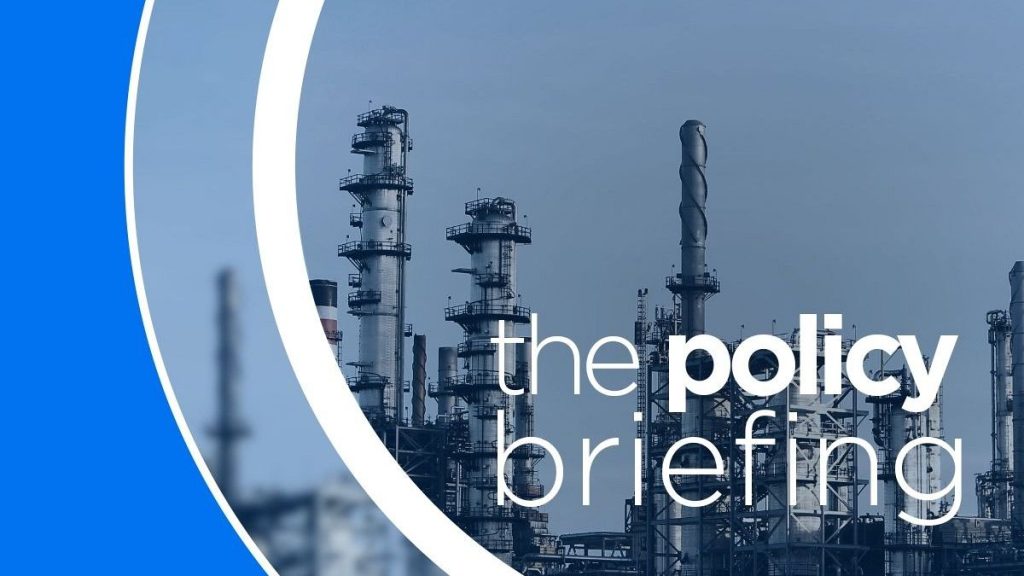The Week in EU Politics and Energy: Key Events and Debates
This week in the European Union has been marked by significant political and regulatory developments, as highlighted by Euronews’ senior energy and environment reporter, Robert Hodgson. From debates on deregulation to the future of trade and environmental policies, the EU Parliament and Commission have been at the center of heated discussions. Here’s a summary of the key events and their implications.
Upcoming Key Diary Dates
The week kicked off with the AI Intelligence Action Summit in Paris on Monday, February 10, and Tuesday, February 11, bringing together experts and policymakers to explore the future of artificial intelligence. Meanwhile, the EU Parliament’s plenary sessions have been packed with critical debates. On Tuesday, February 11, lawmakers discussed the bloc’s preparedness for a new trade era, while Wednesday, February 12, focused on the Competitiveness Compass unveiled by European Commission President Ursula von der Leyen. These events highlight the EU’s efforts to balance economic growth with environmental and social responsibilities, though tensions over the direction of these policies remain high.
Deregulation: A Divisive Agenda
At the heart of this week’s debates is the European Commission’s push for deregulation, framed as a “simplification” of regulations to ease the burden on European businesses. However, this agenda has sparked fierce opposition from left-wing and environmentalist groups, who fear it could undermine key achievements of the Green Deal Agenda. The Commission’s plan includes reducing reporting obligations for companies under directives like the Corporate Sustainability Reporting Directive (CSRD) and the Corporate Sustainability Due Diligence Directive (CSDDD). Critics argue that such measures could rollback environmental and social standards, including worker’s rights and climate neutrality.
Socialists & Democrats (S&D) Group President Iratxe García has sharply criticized the Competitiveness Compass for lacking guarantees to protect these standards. Meanwhile, legal charity ClientEarth has warned the Commission about the rushed and opaque nature of the regulatory reform process, citing potential breaches of EU rules on public participation and impact assessments. Despite these concerns, the European People’s Party (EPP) remains committed to cutting red tape, with Vice-President Dolors Montserrat insisting that unnecessary regulations are suffocating industries. The Greens, however, caution that this deregulation push risks undoing hard-won progress on climate action and human rights.
The Politics of Competitiveness and Sustainability
As the EU Parliament debates the Competitiveness Compass, the broader political landscape is increasingly contentious. The EPP, the largest group in Parliament, is driving a pro-business agenda but lacks a majority, forcing it to seek support from right-wing and Eurosceptic groups like the European Conservatives and Reformists (ECR) and Viktor Orbán’s Patriots. This has raised concerns among progressive lawmakers, who see collaboration between conservatives and far-right factions as a threat to the EU’s competitiveness and values.
On Wednesday, a debate initiated by S&D lawmaker René Repasi further highlighted these tensions, focusing on the risks of conservative and far-right alliances. Simultaneously, the EPP is targeting environmental NGOs by proposing cuts to the LIFE programme, a key EU funding source for environmental initiatives. These moves have deepened divisions within the Parliament, with many fearing that the push for deregulation and political realignment could weaken the EU’s commitment to sustainability and social justice.
Tech Regulation and Transatlantic Relations
Beyond the deregulation debate, Europe’s approach to regulating U.S. tech companies has come under scrutiny. In a recent interview, Meta’s global policy chief, Joel Kaplan, warned that Europe’s aggressive regulatory stance risks isolating the continent just as a global AI revolution is gaining momentum. Kaplan argued that fostering transatlantic cooperation and innovation is essential for Europe to remain competitive. His comments were likely aimed at EU Executive Vice-President Henna Virkkunen, who has been a key figure in shaping Europe’s tech sovereignty and regulatory framework.
While Europe’s regulatory actions aim to ensure fairness and accountability, critics like Kaplan argue that they may inadvertently stifle innovation and push the continent to the sidelines. This debate underscores the delicate balance the EU must strike between protecting its values and maintaining its position as a global tech leader.
Policy Polls and Data Brief
Despite the flurry of political activity, public opinion and data reveal a complex landscape. A recent policy poll highlights growing concerns among European businesses about legal uncertainty and the challenges of transitioning to a clean economy. These findings align with warnings from environmental groups that the Commission’s deregulation agenda could undermine the EU’s climate goals and create an uneven playing field for businesses.
As the EU approaches a critical juncture in its regulatory and environmental policies, the data suggests that the path forward will be shaped by both political maneuvering and public sentiment. The coming months will be crucial in determining whether the bloc can reconcile its economic and environmental ambitions.
Conclusion: A Pivotal Moment for the EU
This week’s events in the EU highlight the deepening divide over the direction of the bloc’s policies. The push for deregulation has sparked intense debates, with concerns over environmental rollback and social inequality pitted against arguments for economic competitiveness. As the EU Parliament and Commission navigate this complex landscape, the stakes could not be higher. The decisions made in the coming weeks and months will not only shape the future of European businesses but also the continent’s ability to lead on global challenges like climate change and technological innovation.
While the momentum behind deregulation appears unstoppable, the question now is how far it will go and at what cost. The EU must carefully weigh the competing interests of businesses, environmentalists, and citizens to ensure that its policies serve the greater good. This is a pivotal moment for Europe, and the world will be watching.












